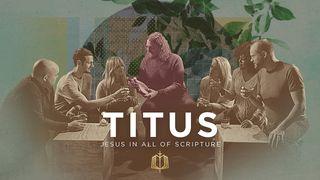Justice ParablesSample

The Good Samaritan
Pastor Aris Sanchez
Spirit & Truth Fellowship Church
The lawyer asks Jesus, “Who is my neighbor?” And Jesus responds that his neighbor is anyone in need. He is essentially asking, “Where do I draw the line in my neighborhood?” The proper question should have been, “How can I possibly be a good neighbor?” The insurance company’s slogan “like a good neighbor” is successful because it expresses the notion that they are present with people when needed. It communicates the idea that a good neighbor sees, hears, and serves others.
Jesus, in this text, is expanding our view of our neighborhood. The lawyer wanted to have boundaries but Jesus tells a parable that indicates our neighborhood is not only where we live, but where we work. Our neighborhood is wherever we are.
At the beginning of the parable, we learn of the violence and brutality often encountered on a well-known road. A man traveling on that dangerous road was jumped by robbers who took everything he had and left him half-dead in a ditch.
Both religious leaders treated the victim as a “nobody.” They were numbed to the pain of the victim. But the Samaritan, moved with compassion, does everything possible to minister to the needs of the wounded victim. Compassion says, “I care for your wounds; we are in this together; you are not alone; I have your back; you matter to me; I will move toward you.” Showing compassion involves being proactive about our neighbors’ needs. Compassion costs something. The Samaritan gave up his time and money to care for the wounded man.
This story teaches us that true love expresses itself in caring for others’ needs. Jesus points out that neighbors may come in surprising places. Jesus is inviting us not to create boundaries of who our neighbors should be. Instead, we should have compassionate hearts towards neighbors who might look different than us. Our neighbor may be an undocumented alien among us who lives afraid. Perhaps it’s the person who struggles with same-sex attraction and feels judged and condemned. Could your neighbor be the native Indians that are often left out of our history books? Is it the homeless people who are often ignored? Is it the drug dealer on the corner? Is it a Muslim family in our neighborhood?
Our relationship with our neighbor is a good barometer of our relationship with God. The parable highlights how unwilling we can be to care for others and how we often fall short of loving God and our neighbors. Jesus reminds us that to love him means that we love and serve our neighbors. Jesus expands our notion of a neighborhood and challenges us to love others regardless of color, affiliation, or economic status. Let us show our love for God and open our hearts to those whom God may be calling us to minister to, even when it is inconvenient.
Questions
- Who is your neighbor?
- Do you know anyone who has been wounded and needs your help to find healing?
- Who is God bringing to mind that you should show compassion towards?
- Ask yourself, “How can I love my neighbor regardless of who they are?”
Scripture
About this Plan

Being part of the Kingdom of God should shape our personal character—and our public roles. But how? “Jesus’s Parables on Justice” features the reflections of 30 Philadelphia pastors on 11 parables that illuminate the Kingdom. The pastors help us ask good questions about these surprising stories to guide us in putting Jesus’s words into practice. Read Jesus’s words. Consider the questions. See what God says to you.
More
We would like to thank American Bible Society for providing this plan. For more information, please visit: http://americanbible.org/
Related Plans

The Comeback Part 2

In Crisis but Not Consumed

Spiritual Beings

The Leadership Style of Jesus

Raising the Next Generation: Trusting God’s Plan for Single Mothers

15 Minute Daily Reading Plan

Exploring Biblical Wisdom - Words From the Wise

How Sweet the Sound

The Shift: Part 1
